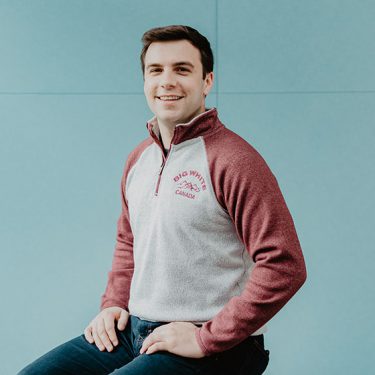Kenny Mayne has been a staple in sports broadcasting for over 25 years. You name it, he’s covered it. This summer he took his talents to NBC’s coverage of the Olympics streaming for the first time ever on their new over-the-top streaming service, Peacock. Alongside Cari Champion, Mayne hosted Tokyo Tonight, a nightly highlights and recap show.
On this episode of #Storyteller, Mayne deep dives into the 2020 Olympics, discussing his favorite moments, the future of broadcasting and streaming services plus some never before heard behind-the-scenes stories that made Peacock’s coverage so special.
Kenny — you were part of NBC’s coverage of a truly historic Olympics. What was it like telling these stories given everything going on with the pandemic and the year delay?
“It was cool that it came off. I also celebrated any achievement. I loved the Bahamas doing well, I loved Canada doing well. Those are our neighbors and our friends. There were so many cool stories of these breakthrough countries. India winning a medal in something they hadn’t, the Philippines winning a medal in something they hadn’t. There were all sorts of cool stories across the board. I’m from the US, so I rooted for the US, but if we lost somebody? Good on them. They beat us that day.”
It feels like access is everywhere right now considering the pandemic — and athletes are taking to social media to tell their own stories. How do you continue to achieve quality storytelling when you’re working remotely and there is access everywhere?
“The athletes having control over their own message? I’m fine with that. It doesn’t mean they’re going to exclude others from still telling their story. Hey, I have Twitter, I have Instagram, the other devices, you name it, podcasts…. I bet you there are some old-timers that are saying, ‘We were stupid. We took that deal, but we were under somebody’s control.’ So I’m fine with athletes taking control, and I was fine when Marshawn [Lynch] didn’t want to talk.”
Tokyo Tonight was streaming on Peacock and we’re continuing to see coverage of major events grow across these over the top services. How do you see storytelling change and evolve as viewers continue to access more and more platforms?
“I’ve always been amazed at how many [streaming services] there are. There are probably 20 more that got invented today. Like where is the audience to support all of these different things? And how is it that that much money can be spent to spit out that much content? Is there enough viewers or eyeballs and money? …I don’t know, it’s working so far. People are pretty smart with their money in general. They’re not going to start this big operation if they don’t see where they margins are and how they can profit from it. But people love watching, whether it’s a minute long or a two hour documentary like I like, but people like what they like and they’re going to go find what’s available.”
This was your first time covering the Olympics for NBC’s Peacock, what was their vision for coverage on their streaming platform, your show in particular and do you think it hit its mark?
“I think we did. It was loose, because we didn’t know what we were doing until our first show what it would feel like. I was working with a brand-new anchor in Cari Champion. We knew each other, but just barely. And two new producers, Alexa and Adam. I had never met them before. It was just, ‘Nice to meet you, here we go.’ And we’re on for four and a half hours. That was the crazy part. We were exhausted. It was fun.”
If you liked this content about the Olympics Check out more #Storyteller episodes and stay tuned for what’s next.
– How Tagboard became part of the language inside UFC
– Tagboard’s Election Coverage Guide for Media Teams of All Sizes

